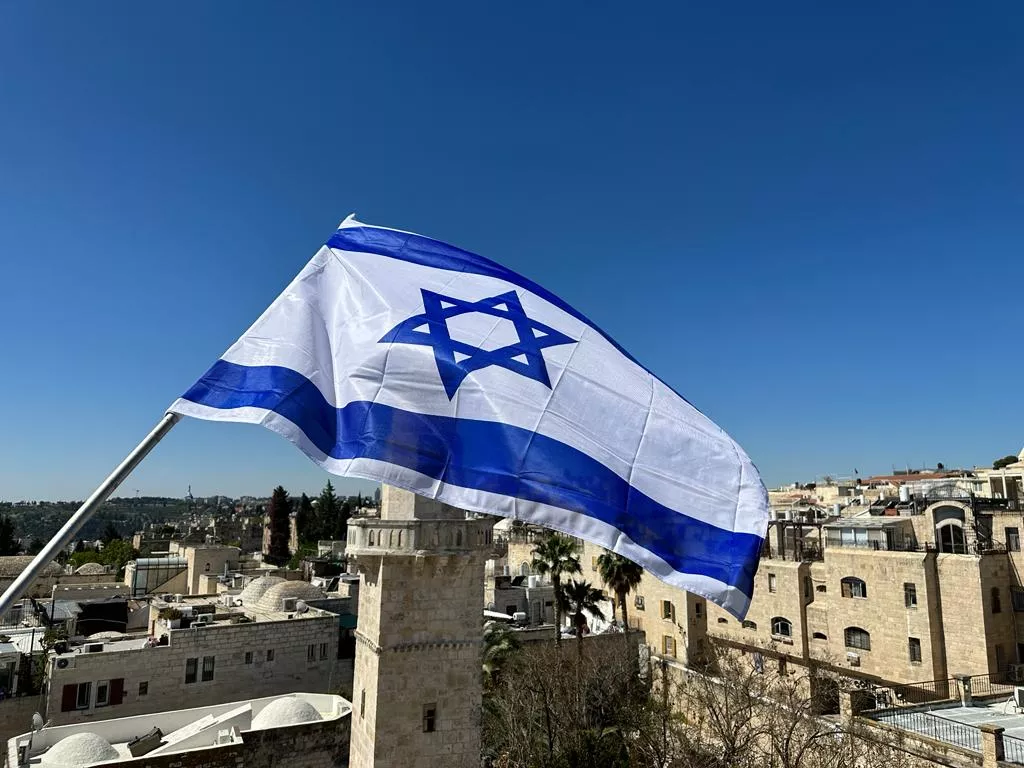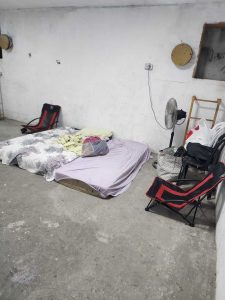The continuing existence and prosperity of the Jewish People is dependent on the continuing existence and prosperity of an independent democratic Jewish state in the land of Israel – the State of Israel. And the continuing existence and prosperity of the State of Israel is dependent on a strong, professional, and moral army- the Israel Defense Forces (IDF).[1]
This statement has carried deep notions regarding the Jewish People since the Declaration of the State of Israel. In addition, it carries implications regarding the relationship between Jews who live today within the borders of the State of Israel and Jews who choose to live outside the State of Israel.
One example would be as follows: The Declaration of Independence of the State of Israel states: “The State of Israel will be open for Jewish immigration and for the ingathering of the Exiles.”[2] To anchor this statement to the newborn state, in 1950 the Law of Return was legislated in the Knesset, stating: “Every Jew has the right to come to this country as an oleh.”[3] And in fact, to this day many Jews from around the world have exercised their right by immigrating to Israel and becoming respected citizens of the State. The contribution of Olim has been vital to the building of the state. But of even greater importance that the Olim was determining a two-millennium-old question regarding “the Jewish refugee.”
On May 14th, 1948, David Ben-Gurion laid this question to rest. The idea that every Jew, in the world, living under any condition now knows that (whether in stress or by choice) they have a place to go that they can call home, has changed the personal status of Jews throughout the world. Whether a Jew living outside of the State of Israel opts to move to Israel is irrelevant. Whether s/he is engaged in a relationship with the State of Israel is irrelevant. Since 1948, Jews around the world have a safe home. This status is literally structured with the DNA of every Jewish person. For two millennia, this was a dream. 75 years ago, it became a reality – achieved through effort and battle. For five decades, and to an extent for the generation that witnessed it (and even today!), it is considered a miracle. Today, for many it is “a given” – maybe even taken for granted. Nevertheless, the right of return is a status every Jew carries wherever they are.
It is the latter part of my opening statement that I find more intriguing. One conclusion we may draw from this statement is that the soldiers of the IDF defending the state on it borders and from within, from hostile enemies bent on harming its citizens and destroying its existence, not only defend their families and the citizens who reside within its borders, but, in truth, protecting every member of the Jewish people, no matter where they are. Therefore, the soldiers who protect the Jewish State – maintaining its physical existence – also uphold the Right of Return – the ideology (and law) of no more Jewish refugees.
On a practical level, there have been many instances since 1948 when IDF soldiers and other parallel security and defense forces, have been required to engage in operations outside of Israel’s borders – to assist Jews in need. Examples include the rescue of Jews from Ethiopia through several “Operations;” the well-known 1976 Operation Entebbe (Operation Yoni), where an Elite IDF unit flew from Israel to Entebbe in Uganda, to rescue Jewish passengers that had been hijacked by terrorists on an Air France flight.
These kinds of responsibilities were taken on by Zionist members of the Yishuv[4] even before the establishment of the State. Hannah Senesh was born into an assimilated Hungarian Jewish family. As a teenager, she embraced Zionism. And following her dream, Senesh immigrated to British Palestine in 1939, joining the Chalutzim, pioneers, who had come to build and be built – Livnot U’Lehibanot – in the land. Living her dream led her to enlisted in the Palmach during World War II. Partnering with the British, and together with other young Jewish Chalutzim, Senesh parachuted behind enemy lines to help the British war effort. She then reconnected with the Jewish community in Hungary to help and assist. Unfortunately, Senesh was caught crossing the border, tortured, and executed. Her actions are part of a broader legacy of sacrifice and service, underpinning the lengths to which a Jewish State in the Land of Israel will go (even outside its borders) to help members of the Jewish people.
This is not a modern phenomenon amongst the Jewish people. The term “Kol Yisrael Arevim zeh la-zeh”- All Jews are responsible for each other, appears in multiple sources in ancient Jewish text.[5] It has become not only a slogan but also a core value and a Halakhic (Jewish Law) principle. Throughout history, strong Jewish communities, philanthropists, and organizations have come together to respond to needs. This is the essential mission of many worldwide Jewish organizations.
And yet, the modern sovereign State of Israel possesses an entirely different setting for this phenomenon. It is a state with power – military, political, economic and more. It is a member of the nations of the world, and as such, its power can be used and extended far beyond its reach. As long as the State of Israel exists, and by virtue its power, its implications are more far-reaching. Again, including upholding the status of no more Jewish refugees.
The State of Israel and the IDF have a responsibility to use their power to assist the Jewish people, wherever they are. But the State of Israel is equally obligated to make sure that this power is not overused or misused in ways that contradict human rights and/or Jewish values. It goes without saying that such corruption of power is immoral and threatens the vital relationship between the State of Israel, the IDF, and the Jews living outside the state.
This is not a one-way equation, where one side holds responsibility towards the other. Rather, this is a two-way street. As the IDF is protecting the well-being of every Jew and must take every measure to do so, world Jewry is likewise obligated to act – to help support and maintain the Jewish State.
Increasingly hostile efforts to “delegitimize” the State of Israel have become a major reality all over the world, including in Western democratic states. It is not limited to conservative nor liberal circles, nor is it limited to radical religious groups. It exists in multiple forms and manifestations and has become a welcomed guest and accepted view among mainstream academia, media, politic and social circles. Social media platforms have been able to reach the masses, rapidly spreading anti-Israel messages. This has become a major battlefront, where the legitimization of a Jewish democratic state in the land of Israel is contested. Combating it requires soldiers as well.
As the citizens of the State of Israel and the soldiers of the IDF have been holding the line for over seven decades – maintaining the physical status of the State of Israel and ensuring a prosperous future for the Jewish people – members of the Jewish people outside of Israel must hold the line against these anti-Israel and delegitimization efforts. Like soldiers, they must learn, train, and actively engage as needed. Serving in the IDF it is a requirement and a privilege. Without it, the continuing existence of the State of Israel as a home for the Jewish people is at risk. This new threat poses a similar threat.
World Jewry cannot afford to be indifferent to this matter. It is an individual and communal requirement. Every Jew must seek reliable sources of information to gather and obtain knowledge regarding Israel and its complex issues. They must prioritize Israel engagement and achieve a level of sensitivity to Israel which will not allow them to be indifferent, to stand idly by.
Jewish world leaders must not shy away from this either. They must prepare the ranks and engage on any and all fronts regarding this issue.
The Jewish people can’t allow themselves to drop their guard in this matter. To neglect this battlefield is to put the continuing existence and prosperity of the Jewish People at risk.
Jewish people need not see eye-to-eye with every policy of the State of Israel. Nor are they required to agree with the way that various issues are handled in Israel. True concerns regarding the issues and challenges facing the state of Israel and its citizens should not be swept under the carpet. Voicing concerns demonstrates deep care and love towards the State, its citizens, and the Jewish people. But these differences should not stand in the way of advocating and fighting for maintaining legitimization of the State of Israel.
Expressing concerns and criticizing Israel should be done only in a “family” setting: internally; out of love and respect; in a constructive manner; with the sole intention of repairing the home and maintaining the family. Although it might seem as if we are very different and quite far apart, we cannot not give up, in the same way that we don’t give up on a family member who is acting in a way that does not suit us.
Now we understand that the IDF is not so small as perceived. Its soldiers are worldwide, and their missions and challenges spread far and wide. Only joint efforts on all fronts can insure the continuing existence and prosperity of the State of Israel and the Jewish people.
As we recite in the prayer for the state of Israel, we ask G-d to “strengthen the hands of those who defend our holy land, grant them deliverance, and adorn them in a mantle of victory. Ordain peace in the land and grant its inhabitants eternal happiness.” We don’t pray for war. We pray for peace and happiness. But if needed, we ask for strength, deliverance, and victory. We, the Jewish people, must strengthen and be strengthened on all fronts, for the future of the State of Israel and the Jewish People.
[1] Of course, the IDF is not the only factor needed in order to maintain the future of a prosperous state of Israel- yet without it enemies around would reed of a state all together.
[2]The Declaration of the Establishment of the State of Israel – on the webpage of the Israel Ministry of Foreign Affairs here
[3] The Law of Return on the Knesset website here
[4] I use the term Yishuv as used in Zionist literature to refer to the organized Jewish population in Palestine during the pre-state period. During the end of the Ottoman Empire though the British Mandate up to the Independence of the State of Israel in 1948.
[5] ספרא ויקרא כו, לז. סנהדרין כז ע”ב, שבועות לט ע”א, ראש השנה כט ע”א.




